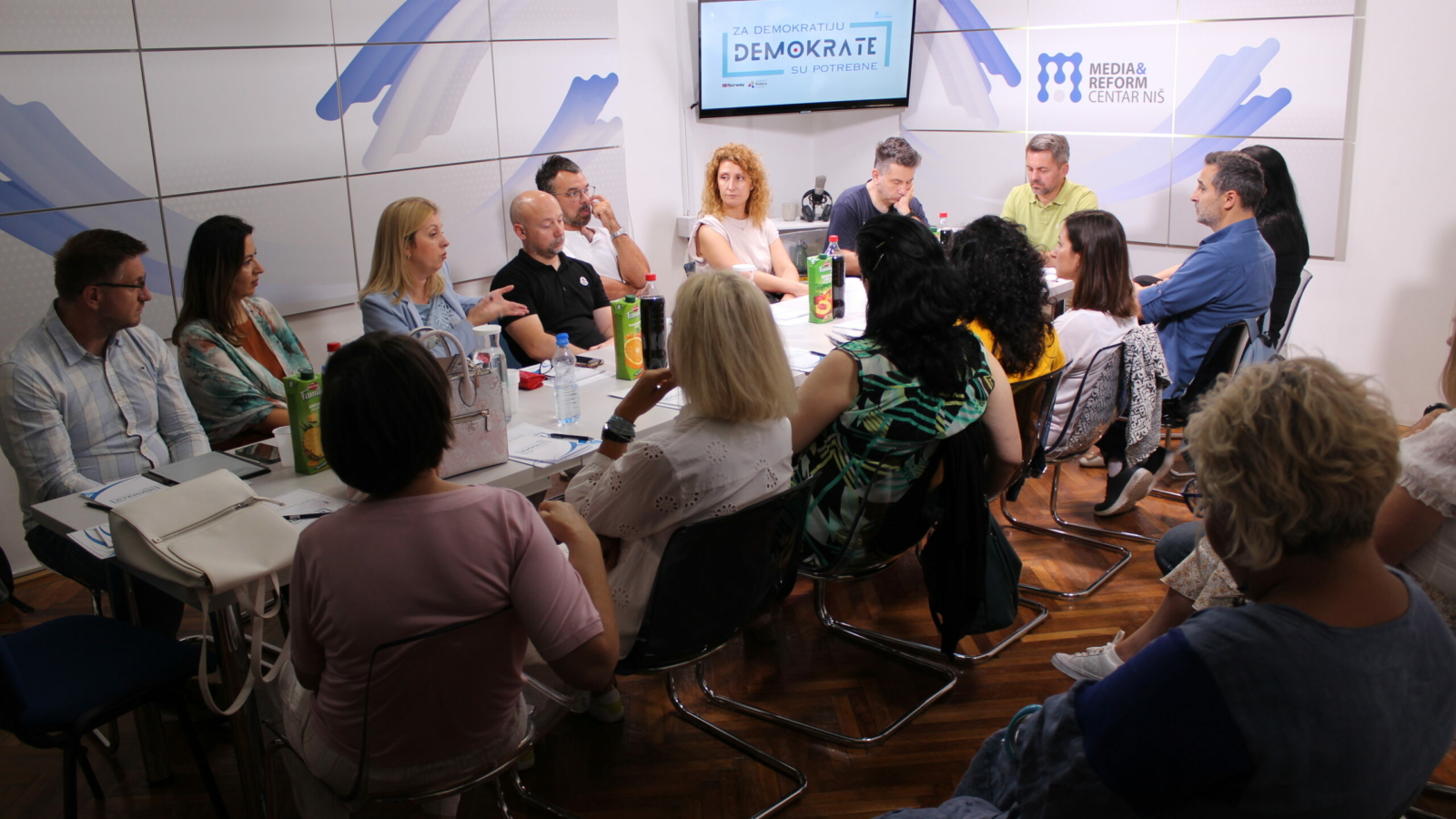On December 21, the Zajecar Initiative, National Intervention grant recipient from Serbia, will organize the fourth consultative meeting in Užice within the framework of its project called “Democracy Needs Democrats.” The meeting will be held in the premises of the Regional Center for Professional Development, starting at 12 noon.
The project “Democracy Needs Democrats” aims to contribute to the higher quality and more efficient civic education of young people in Serbia, both through formal teaching programs and informal education.
The results of various surveys conducted over the past years show worrying trends. The majority of young people believe that the political system in Serbia does not allow them to influence political processes and decisions at all. They do not trust the electoral system and institutions, especially the media, political parties, and political institutions, while trust in democracy is at a record low level. A large part of the reason for these attitudes of young people can be found in the inadequate framework for civic education in Serbia.
Civic education is part of the official curricula in all EU countries, either as an independent subject, as part of another subject, and/or as a cross-cutting dimension of the curriculum. However, the level of representation in the curriculum varies greatly from country to country. The impression is that civic education, as a subject, is not given much importance in Serbia. Civic education was introduced in the school year 2001/2002, first in the first grades of primary and secondary schools as an optional subject. In the 2006/2007 school year, a new decision was made by which these subjects were introduced into all grades of primary and secondary schools as mandatory elective subjects. Thus, students should opt for one of these two subjects. Data show that today only 30 percent of students choose civic education as an elective. This brings us to a very important question: How do young people in Serbia acquire knowledge and skills and form the attitudes they need to develop into “responsible and active citizens” ready to take on the rights and obligations that come with a democratic society?
Consultative meetings have a key role in this project. Their purpose is to bring together relevant actors in the field of civic education: professors, teachers, representatives of school administrations, civil society organizations, student parliaments, international organizations, experts, and others who can contribute to the development of concrete measures to improve civic education in the Republic of Serbia.
During the previously held consultative meetings in Nis, Kragujevac, and Belgrade, which already gathered over 100 participants, numerous proposals for measures to improve civic education were collected. One of the comments that could often be heard during these meetings concerns the teaching staff who teach this subject. Namely, civic education often serves as a means of supplementing lessons, so this subject is also taught by teachers with diplomas from natural and technical faculties.
The series of consultative meetings will continue at the beginning of 2024 in Novi Sad, after which the first draft of a policy document with measures to improve civic education in the Republic of Serbia will be created based on the experiences and collected proposals. This document will be presented to the public during the final conference that will be held in Belgrade in March next year.
The Zaječar initiative is a citizens’ association that has been working with high schools and student parliaments for over 15 years on various civic education programs for young people, such as the “Youth on the Move” and “School Elections” programs. More information about these programs and the Zaječar initiative can be found on the websites www.ziman.rs and www.zainicijativa.org.








